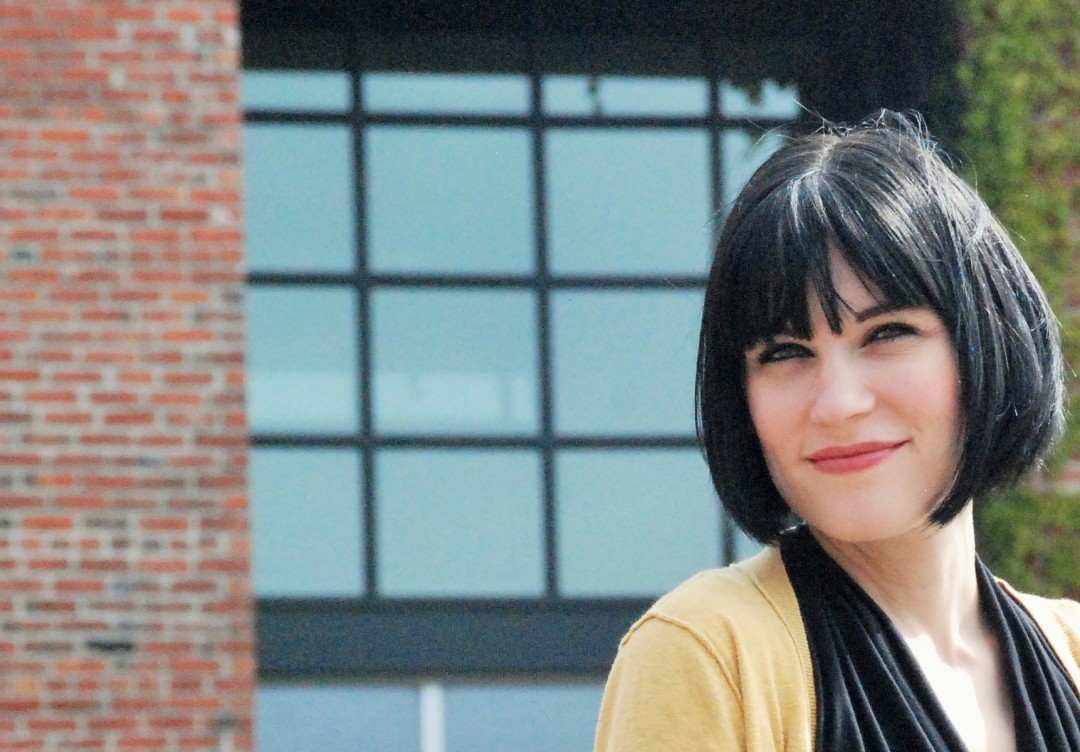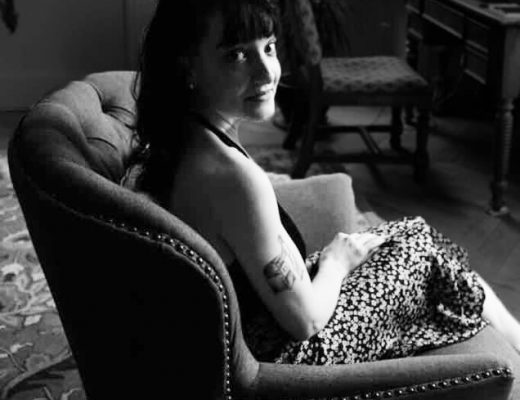Matrimony in Four Parts
1. Spectacle
Ceremony: A rite or observance usually regarded as formal or external; or is it an empty form? Often regarded (and articulated to us) as symbolic or traditional.
My Fair Wedding, a television show hosted by famed wedding planner David Tutera, asks women from across the states to put their wedding in the hands of an expert at absolutely no cost. The rousing reputation that follows Tutera is that he’s not known for planning a wedding under $100,000. He makes the venues more grandiose, the wedding dresses more extravagant, and incorporates intricate floral and décor designs that could rival Martha Stewart on her best days. Networks such as Women’s Entertainment loop shows like this one on continual reruns, as well as Say Yes to the Dress and Bridezillas, to teach us the twenty-first-century ideology behind the ceremony: the spectacle. Should we care about companionship or about the designer dress adorning our bodies? Should we put our faith in everlasting love or the eight sets of fine china listed on our registry?
Weddings in China seem to exist not only to bind two people together, but also to display the family’s impressive wealth. Ten course meals for guests are common, and the bride is on display in up to three different wedding dresses throughout the event to demonstrate the impressive opulence of their social status. In Italy, after guests have gorged themselves on a plethora of pastas, the bride dances around with a satin bag in her hand, the sole purpose being to collect funds to help pay for the ceremonious affair.
We’re told through the art of subtext that it is undesirable to be alone. Dating websites cater to us to help find a significant other, even doing all the grunt work to search for your soul mate, saving you the months (or years) of soul searching and isolated anguish that is associated with dating, all for a reasonable monthly fee. Some websites even simulate the existence of a significant other so your friends and family won’t conclude you are a lost cause. Imagine being out to dinner with a date and things seem to be going well, but slowly your date becomes taciturn and distracted. Do you have lettuce stuck in your teeth again? Should you not have mentioned still living with your parents? Your phone buzzes on the table next to you and as you preview the text message, your date, abruptly possessed with intrigue, asks who it is. You tell them (with a knowing smirk) it’s another potential date. For twenty-five dollars, that scenario could occur as an artificial Internet wizard behind the curtain will lovingly dote on you through text messages and emails to give the appearance that your life has meaning because you found a partner. What about the prospect of living an independent life? At what point did we decide that we absolutely had to be coupled? Is it happening for pleasure or profit?
The wedding industry has evolved into just that: an industry. Capitalism got its hungry hands on newly engaged couples and cashed in on their impulsive, lovesick minds, forcing them to reconsider their intimate church wedding of twenty for the razzle-dazzle destination wedding of two hundred. Weddings in America are competitions now; within each lavish ceremony are brides looking to one up each other to prove their lives, and love, are more powerful than others. You can see the subtle expressions of boastful egotism if you look hard: in the seven-tiered cake; in the twenty piece band; in the three-hundred-plus guest list. Marriage marks a certain level of success; a box checked off on a long list of to-dos. Our society has successfully sold a tradition as an exhibition.
Is it still about love? Are we now being conditioned into getting married?
Initially, I was dazzled by the rings I was given as a “token” of tradition: 1.5 carats, 34 diamonds, white gold bands. The intoxicating glimmer, however, is all part of the spectacle. I was, at one time, entirely swept up in it. Sometimes I look down at them and I just see something that I have to wear.
2. Religion
God created marriage. No government subcommittee envisioned it. No social organization developed it. Marriage was conceived and born in the mind of God.
—Max Lucado
I was raised a Christian, attending sermons at a local Free Methodist church with my mother until I became a snarky teenager who had adopted typical teen etiquette and began questioning organized religion. As a child, swinging my chubby legs under the crimson, weathered pews, our pastor painted the multifaceted potential for sin and its propensity for luring even the most devout individual. He described hell in explicit detail, as if he’d been there and survived, sacrificing himself just to warn us of its wicked and pestilent existence.
The infamous Irish author James Joyce had a similar experience growing up under Catholicism, and his mother’s stern direction, and he shared the revelation of Hell in his autobiography, Portrait of the Artist as a Young Man. What followed his introduction into religion was six pages of descriptive narration detailing the complexity of hell: the stench of rotting bodies, the sizzling of brains and simmering of blood in lakes of fire, the endless endurance of inevitable, unsympathetic torture—all to pay for a few sins.
At twenty-three, these scintillating sermons on sin began percolating once again in my mind. I had casually captured the love, and loins, of an Air Force Sergeant I had known since pre-pubescence. By casual, I mean I had just escaped a five year [doomed] relationship and all I was looking for was exciting, exploratory sex. This was the single reason for my visits, but after a few months, and a handful of impressive moments of artful wooing on his part, he asked to upgrade our label from casual to exclusive.
We lived together for a full year before he proposed, which meant I had a significant amount of forgiveness to ask for. Every time I mentioned to my mother I was heading “home,” she would ask which home I was referring, just to hear me utter the words, subversive and incriminating. Her eyes would scowl in her own particular way reserved for subtle judgment. The question was swiftly followed by a murmur about marriage and morality. By the time I had calculated the rate of fornication, multiplied times the amount of clemency I would need, I figured no amount of begging would release me from my damned fate. I hadn’t been a practicing Christian for years, yet the principles of God and the images of hell were deeply rooted, where they couldn’t be easily exhumed. I often wonder, was it the spirit of James Joyce possessing my pastor, relaying the existence of heaven and hell, beckoning us to just listen?
Before my husband put a ring on it, I couldn’t escape the insurmountable guilt of premarital sex. For every foil cracked open, for every climax inevitably and ecstatically reached, I could visualize my God in heaven carving black tick marks under my name—each thick line carrying years of judgment and damnation. I could see his face growing grim, gray hairs sprouting, wrinkles invading that immortal complexion. It was my fault. The small part of God in me pined for a marital union so in the case that heaven were real, my soul would not be set ablaze to perish in hellfire for one eternity after another.
3. Love
Whatever our souls are made of, his and mine are the same.
—Emily Brontë
I am a cynical romantic. As a child, I fell in love with Westley from The Princess Bride. The mysterious mask, the boisterous sword fighting, his long hair that swept gracefully in his eyes every time he murmured “As you wish.” No other boy could compare to Westley growing up, and I assure you the comparison was made on several occasions. I knew I wanted to be wholeheartedly consumed by love one day, but deep down I anticipated disaster. My parents’ divorce when I was twelve was a symbol for me that McCarthys simply weren’t meant to marry. It was the first time I was exposed to the idea that fairy tales have expiration dates.
My husband has reminisced, any time anyone asks [and even when they don’t], that he knew he loved me before we even started dating, but I was reluctant to be so cavalier about my feelings. I still have issues expressing genuine emotion that surpasses my comfort zone of sarcasm and silence. Those are safe places to hide. He’s the type that if he had twenty dollars left to his name, he would still sacrifice half of that on flowers in an effort to keep me on my toes. Love looks like a man willing to endure being assailed by rain to fill my gas tank so I can stay dry inside. It looks like a gentle hand on the small of my back; like a kiss at dawn when he thinks I’m asleep.
When I tell people I’m married, it’s just a statement; not a groan, but not an exclamation. When I announced my engagement, a handful of my peers thought I was joking. They even reminded me of the monetary bet I had placed with them against the potential of marriage in my foreseeable future. I had to pay up once my wedding day commenced. The issue with marriage is the ownership aspect, and the binding of possessions, including the self.
In some ways we lose part of our self as we merge irrevocably with another human being. Last names are traditionally carried over from the husband to the wife, and instantly images of women scrawling “Mrs. so and so” on lined notebook paper comes to mind. In my case, and early in our relationship, I was alarmed to visit my husband’s home and find several doodles he had made on old receipts with his last name replacing mine. Fear struck me, and I threw away the scribbles before he returned home, so he didn’t know I had found them.
I mourned the loss of my last name before I had even given it away. What right did any man have to take it from me? What was wrong with my singular identity? It felt like the life I had lived before marriage was just a temporary existence, a waiting period, until by chance I found a husband who would be the starting point of my new life, the life I finally deserved as a married woman. When the time came, the conversation of identity was unavoidable: I stubbornly clung to my Irish roots while he persisted on embossing his German name onto mine.
“It’s tradition,” he said.
“So? Do you take me for a traditional woman?”
“Well, I know I said it didn’t mean much to me, you taking my last name, but I changed my mind.”
“And now I’m supposed to change mine?”
The result was my first lesson in compromise for the sake of devotion: a hyphenated mouthful of a last name that collects dust on legal documents.
Do we sometimes forget that love is only a small fraction of the enormous pie that is matrimony? Fresh love is unrelenting. It’s the excitement that exists outside of the realm of your normal life, like an alternate dimension consisting of flirty cocktails and extended foreplay. You’re with the one you love and for finite moments, you’re the best version of you. The version that you hope they fall for. Then these moments become fewer and far between because you begin to spend every waking second together. Gradually, the exhilarating “other life” you had with this person melds into reality, which many find disenchanting. By that point, you’ve met the parents, slept over in sweats, and passed gas in bed. This is the type of love many strive for but few reach and hold onto.
4. Solitude
Monophobia is categorized as an abhorrent fear of being alone.
We can’t overlook our desire to marry to ward off vulnerability and isolation. Adam and Eve were the ultimate testament that we are creatures destined to couple. Throughout history, women were often treated like objects through the marriage process as the bride’s father transferred his daughter, typically accompanied with a sizeable dowry, to a man who assumes responsibility of providing for her. Were unions such as this happening for sustainability purposes or were couples marrying, compatible or not, to avoid living and, ultimately, dying alone? Did Adam and Eve first construct the idea that loneliness is abhorrent?
My husband and I have been through three deployments together in five years. Two out of those five years he was shipped off to different war-torn countries. He has missed a myriad of birthdays, anniversaries, and significant milestones that cannot be retrieved or recreated, regardless of the energy he exerts to do so upon returning home. But I suppose I signed up for that. I knew what I was getting into. However, my brain was inextricably cross-wired the day we exchanged vows; it’s as if my mind threw out the potential notion of ever being alone again. I had a husband, someone who was supposed to be an active participant in everything that is my life, and vice versa; someone to love my spirit, to worship the curve of my spine, to understand and relieve my perpetual habit of self-deprecation.
But often, the only companion I have is silence. Many of us share a bed with a solitude so palpable, it could caress our memories at night and cause us to forget about ever having a spouse. I have framed photographs around my home reminding me of the moments in life I’ve lived with and without my husband present. I’ve had coworkers and friends comment on my situation, as if I wasn’t aware of how miserable it can be, by mentioning things like “I don’t know how you do it,” “I could never wait around for someone like that,” and a personal favorite, “My husband works nights so I know how you feel.”
On our second wedding anniversary, I stared down the white stargazer lilies and purple roses that had just been delivered. The note read:
This makes it two years you’ve been my amazing wife. I have never been so happy. I can’t wait to come home to you next month.
I couldn’t even hear his voice in the words anymore. The quiet cadence of his speech was lost after several months in the desert.
In Herat, Afghanistan, with a time zone difference of eleven hours, few words were exchanged that day due to alternate hours and unreliable Internet connections. To keep my mind distracted from the debilitating silence, my husband recommended I go out. The waiter leading me to my table asked “Is it just you tonight?” I wanted to say no, that I’m celebrating a marriage—a union of plural—but all I could mutter was yes. My corporeal form of “singular” left me wondering if the “plural” actually exists. One set of silverware, one wine glass, one wedding ring. It was a strange moment: out to dinner alone, celebrating a marriage I couldn’t physically see evidence of.
I had tricked myself into thinking that marriage equated to permanent companionship, and I was not alone in that opinion. Thousands of miles away, under the thick, deceptive curtain of a sand storm in Afghanistan, an American military base was unceremoniously bombarded by racing mortars from the surrounding hills. Finally reaching a bunker, as the timeworn walls protecting his skin and bones quaked, my husband wondered if he would die alone while clutching one of my photographs. I couldn’t help but suffocate in the notion that we can never avoid dying alone.
Nicole McCarthy is an MFA candidate in the Creative Writing & Poetics program at the University of Washington Bothell. She is the Managing Editor for The James Franco Review.



